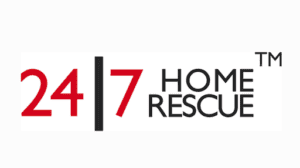Understanding the correct boiler pressure is essential for efficient heating and the proper functioning of your home's heating system. When the heating is on, the ideal pressure for your boiler should typically be between 1.5-2.5 bars, ensuring that the system operates smoothly and safely. This range is usually indicated by a green zone on the pressure gauge, which most boiler manufacturers mark as the ideal pressure for the heating system.
In general, a boiler's pressure should not increase by more than 1 bar above its optimal working pressure when the heating is turned on. Most boiler manufacturers recommend an ideal operating pressure of around 1.3 bars. While a boiler may operate adequately below 1 bar, it is generally designed to stop operating when the pressure drops below 0.5 bars to prevent any potential issues or damage.
Regularly monitoring and maintaining the correct pressure in your boiler is crucial for its efficiency and longevity. By following these guidelines and ensuring that your boiler stays within the recommended pressure range, you can keep your heating system running effectively and prolong the life of your boiler.
Boiler pressure is a crucial factor in the efficient functioning of your heating system. It refers to the pressure of the hot water running through the central heating system, measured in bars. The ideal boiler pressure is usually marked as a range in green on the gauge, with red zones indicating low and high pressure areas. When the heating is on, the normal boiler pressure should be between 1.5 and 2 bars.
An optimally functioning boiler ensures that your home remains warm and comfortable while keeping your energy consumption reasonable. Understanding the reasons for pressure changes and maintaining your boiler's pressure at the correct level is essential.
There are several factors that can lead to changes in your boiler's pressure:
Monitoring your boiler's pressure and addressing issues promptly is critical to maintaining the system’s efficiency and ensuring your home remains warm and comfortable. If you are unsure about your boiler pressure or encounter any problems, it's always best to consult a professional heating engineer for assistance.
When the heating system is in operation, the ideal boiler pressure should typically be between 1.5 and 2.5 bars. This range ensures efficient heating and allows the system to operate properly. It's important to note that boiler pressure may rise by around 0.3 to 0.5 bar when the heating is on, making the ideal boiler pressure range between 1.5 and 1.8 bars when the water is hot.
The pressure gauge on a boiler usually indicates the ideal pressure range in green, with red indicating the low and high boiler pressure zones. It's important to keep in mind that your boiler may still function if the pressure is in these red zones. However, it's always better to maintain your boiler pressure within the green range for optimal heating performance and system longevity.
For multi-storey homes, the required boiler pressure may vary. A two- or three-storey home may need to run slightly higher at 15 psi for two floors, while 18 psi is required for three floors. It's essential to consult your boiler's equipment manual or a professional to determine the optimal boiler pressure range for your specific model.
Remember to monitor your boiler pressure regularly to identify any potential issues early on. If the pressure is too high or too low, it could lead to inefficiencies, higher energy bills, or even system breakdowns. By maintaining the proper pressure for your boiler when the heating is on, you can help ensure a comfortable and energy-efficient home environment.
Low boiler pressure can lead to inefficient heating and even a complete loss of heating and hot water in your home. Some common signs indicating low boiler pressure include:
Low boiler pressure is not dangerous and won't cause damage to your boiler, but it is essential to address the issue to ensure your heating system is working effectively. To repressurise your boiler, you can follow the instructions outlined in your boiler's manual or consult a registered gas engineer for assistance.
Excessive boiler pressure can potentially cause leaks, malfunctions, and even explosions. It's important to monitor your boiler's pressure to ensure it remains within the appropriate range for optimal performance. Indications of high boiler pressure may consist of:
In cases of high boiler pressure, it's crucial to seek professional help from a qualified gas engineer to diagnose and resolve the issue, as it can be hazardous if not addressed promptly. Remember to regularly check your boiler pressure to ensure it's operating within the recommended levels for maximum efficiency and safety.
We've extensively reviewed over 30 boiler cover providers against price, reliability, and customer satisfaction, and our recommended best buy is 24/7 Home Rescue. Rated 4.6/5 stars on TrustPilot with 77,258 reviews, they are our top pick for boiler cover.

When discussing boiler pressure, it's important to consider the influence of outside temperature on the system. As outdoor temperatures fluctuate, so too can the pressure within a boiler. This is because the water within the system expands as it heats up and contracts when it cools down. Consequently, the pressure can rise and fall depending on the ambient temperature outside.
One factor to take into account is that during the colder months, the demand for heating increases, causing the boiler to work harder to maintain a comfortable indoor temperature. As a result, when the heating is on, the ideal boiler pressure should typically be between 1.5-2.5 bars. This range ensures that the system operates efficiently and properly. The pressure gauge on your boiler will usually have a green zone to indicate the ideal pressure when the heating is on.
It's important to regularly check your boiler's pressure, especially during winter when there's a higher likelihood of pressure fluctuations due to the increased demand on the boiler. It's completely normal for the boiler bar pressure to rise by around 0.3-0.5 bar when the heating is on. Thus, optimal boiler pressure during heated water should be in the 1.5-1.8 bar range.
It's also worth mentioning that if the boiler pressure is too high or too low, the boiler may shut down or 'lockout'. Stable pressure is essential for efficient heating; if your boiler consistently loses pressure, it could indicate a leak in the system.
In summary, the influence of outdoor temperatures on boiler pressure is a key consideration when maintaining your heating system. Regularly monitoring your system and understanding the ideal pressure ranges, particularly during colder months, can help maintain an efficient and effective heating system in your home.
When it comes to adjusting the boiler pressure, there are two main techniques: reducing boiler pressure and increasing boiler pressure. These methods can help maintain the recommended pressure levels for your heating system.
If the pressure in your boiler is too high, it's essential to bring it down to prevent damage or potential lockouts. Here are some steps to reduce the boiler pressure:
Low boiler pressure can also cause issues with your heating system's performance. To increase the boiler pressure, follow these steps:
By adjusting your boiler pressure accordingly, you can ensure that your heating system operates efficiently and prolong its lifespan. Always consult your boiler's manual or a professional if you're unsure about the process or encounter any issues.
Regularly monitoring your boiler pressure is essential for maintaining its efficiency and safety. A properly functioning boiler should have a pressure of around 1 to 2.5 bars, with the ideal point being approximately 1.3 bars. However, the exact pressure may vary depending on your specific boiler model and manufacturer's recommendations. As a general rule, the pressure should be in the lower end of the green zone on the pressure gauge.
It is important to note that when the heating is on, it's normal for the boiler pressure to rise by around 0.3 to 0.5 bars. This increase is due to the expansion of water as it heats up. The ideal boiler pressure when the water is hot should be within the range of 1.5 to 1.8 bars.
In order to effectively monitor your boiler pressure, you should:
If you discover a potential issue with your boiler pressure, such as it being too high or too low, contact a professional engineer to diagnose and resolve the problem. Constantly maintaining the ideal pressure will not only ensure efficient operation but also help to prolong the lifespan of your boiler.
Remember, never attempt any repairs or adjustments on your boiler pressure without consulting a qualified technician. Incorrect adjustments can cause damage to the system or pose a safety risk.
If you're unsure about the correct boiler pressure for your heating system, it's always wise to consult a professional. In general, when the heating is on, the boiler pressure should be between 1.5 and 2.5 bars. However, specific requirements will vary depending on your system. A professional heating engineer can evaluate your boiler and help you determine the ideal pressure.
In some cases, boiler pressure may fluctuate or deviate from the recommended range. This could indicate a potential leak in the system or another issue. It's important to take these concerns seriously and seek professional assistance if you notice any sudden changes in your boiler pressure.
When hiring a heating engineer, ensure they are properly registered and qualified for the job. In the UK, this means they should be Gas Safe registered. A Gas Safe registered engineer has the necessary skills and knowledge to handle boiler-related tasks safely and professionally.
Regular maintenance of your boiler is essential to ensure optimal performance and prolong its lifespan. Routine servicing carried out by a professional can help identify and resolve any pressure-related issues before they escalate. This, in turn, helps to maintain the safe and efficient operation of your system.
In summary, if you experience any issues with your boiler pressure or have concerns about the state of your heating system, getting professional help is key. A qualified heating engineer can assess your boiler, identify potential problems, and provide advice on the appropriate course of action to maintain a safe and efficient heating system.
When it comes to boiler pressure, maintaining the right levels is essential for efficient heating and proper functioning of the system. Ideally, the boiler pressure should be between 1.5 and 2 bars when the heating is on . This range ensures that the system operates effectively and safely.
To easily identify the correct pressure, most pressure gauges feature a green zone which indicates the ideal boiler pressure for the heating system. If boiler pressure is outside the green zone, there could be potential problems such as a leak in the system or the boiler shutting down due to high pressure.
Keeping a regular check on boiler pressure and ensuring that it remains within the optimal range is an important aspect of maintaining the health of your heating system. By doing so, you can help prevent potential issues and prolong the lifespan of your boiler.



